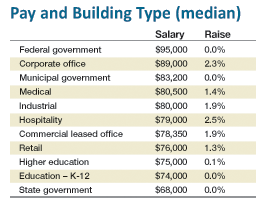Communication Essential to Managing Facilities During Downturn
During periods of upheaval, it is important to communicate with employees for the purpose of managing resistance and facilitating buy-in. ADP implemented a major communication plan to help with the transition to outsourcing, including "road shows," webcasts, telephone conferences and an extensive change management program. Elman says that ADP worked hard to map employee benefits structures to the new company so that employees did not experience losses. At the same time, employees had to adjust to new reporting responsibilities and more paperwork.
At SAP employees were given information about the need for creating a smarter, more efficient organization. "We needed education, clarity, and transparency with regard to corporate objectives," says Morgan. SAP employees worked collaboratively to achieve a 4 percent cut, and participatory decision making helped achieve "buy in" on austerity measures.
Fenwick & West has worked hard to communicate with employees about reductions and changes, often using social media techniques such as Facebook, Twitter and blogging. "We have stepped up the marketing of the department," O'Loughlin says. "You have to justify what you are doing. [We] highlight the good things we are doing, educate on the changes. We send a digital newsletter with an internal portal that looks like a Facebook fan page."
Digital marketing has been a great success and has allowed a lot of interaction with employees, which creates buy-in about cost-cutting strategies, says O'Loughlin. For example, in the past, every kitchen on every floor used to have a selection of 20 teas and multiple kinds of coffee. Since many of these choices were not used, and since these products have a limited shelf life, the company was wasting a lot of money. An on-line survey of flavor choices eliminated about 60 percent of what was being offered in the kitchen, which was a significant cost savings for the company. "There was no pushback," says O'Loughlin.
Silver Linings
The recession hasn't been uniformly bad news for facility managers. Because of the recession, many companies have deepened their understanding of how facility management can contribute to or take away from the bottom line. The technical expertise that facility management can offer is now more valued, according to O'Loughlin. At O'Loughlin's company, strategic meetings involving facility management now take place every week.
The pain of the recession has forced facility managers at SAP to become "more core-business savvy," says Morgan. "We've always been good at managing our money by being efficient, but in the last four years we've become more effective as financial leaders and are much more aligned with the C level and core business activities of the organization."
More discipline and foresight has created more innovation, says O'Loughlin. "Innovation makes or breaks a company," she says. "The recession made us lose our complacency."
Maryellen Lo Bosco, a contributing editor for Building Operating Management, is an Asheville, N.C.-based freelance writer who covers the facility market.

Click to download PDF
More FM Salary, Career Info
The FacilitiesNet.com Career Center offers a salary search function that can zero in on specific salary data by job title, region, and other factors. The Career Center also offers job postings and other career resources. Go to www.facilitiesnet.com/careercenter/default.asp. |
Related Topics:















